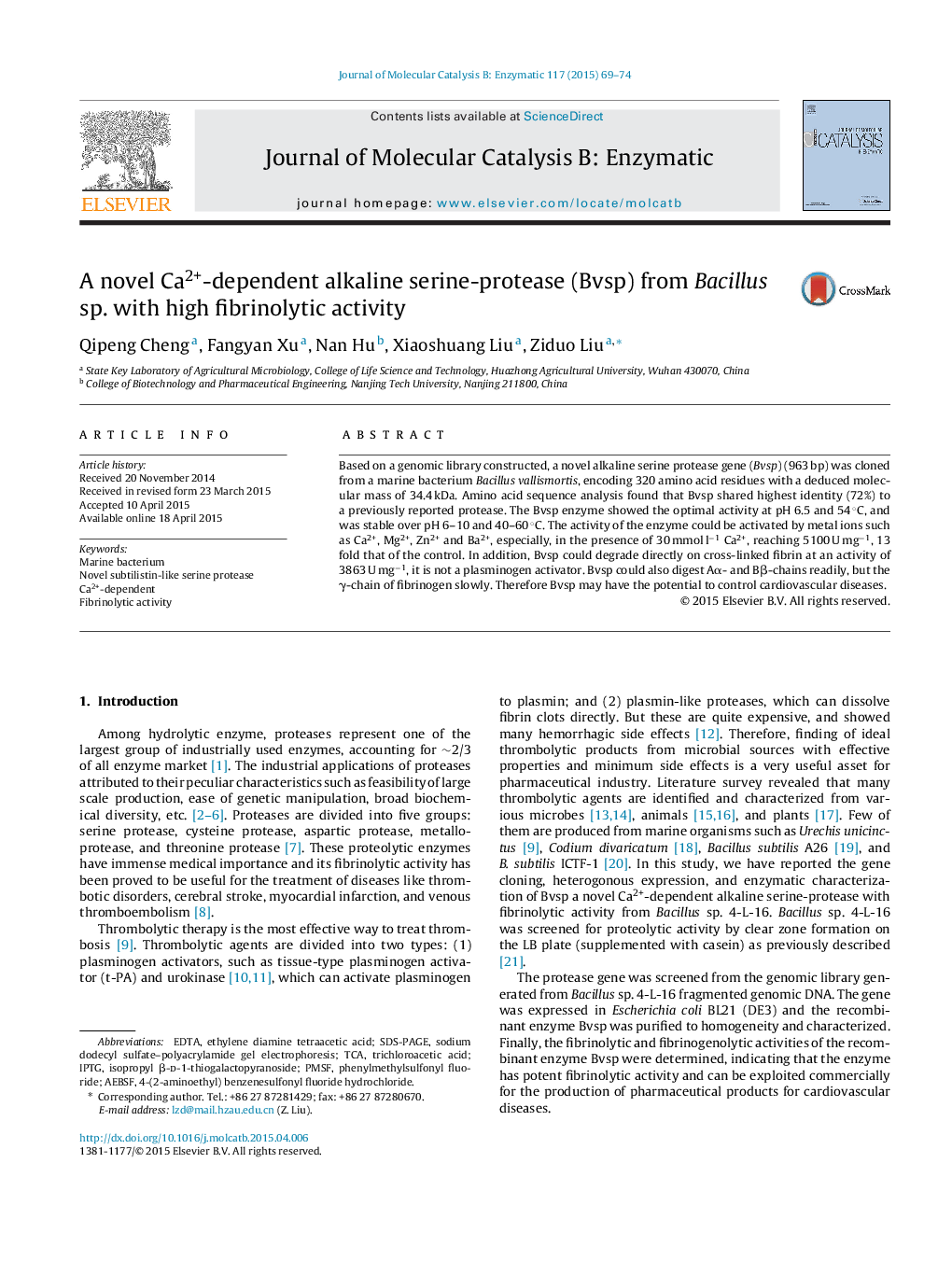| Article ID | Journal | Published Year | Pages | File Type |
|---|---|---|---|---|
| 69711 | Journal of Molecular Catalysis B: Enzymatic | 2015 | 6 Pages |
•A novel gene encoding a serine protease BVSP was cloned from deep sea bacterium.•Detailed enzymatic characteristics of the enzyme were studied.•Ca2+ strongly enhanced the activity of BVSP.•The enzyme has the potential to control cardiovascular diseases.
Based on a genomic library constructed, a novel alkaline serine protease gene (Bvsp) (963 bp) was cloned from a marine bacterium Bacillus vallismortis, encoding 320 amino acid residues with a deduced molecular mass of 34.4 kDa. Amino acid sequence analysis found that Bvsp shared highest identity (72%) to a previously reported protease. The Bvsp enzyme showed the optimal activity at pH 6.5 and 54 °C, and was stable over pH 6–10 and 40–60 °C. The activity of the enzyme could be activated by metal ions such as Ca2+, Mg2+, Zn2+ and Ba2+, especially, in the presence of 30 mmol l−1 Ca2+, reaching 5100 U mg−1, 13 fold that of the control. In addition, Bvsp could degrade directly on cross-linked fibrin at an activity of 3863 U mg−1, it is not a plasminogen activator. Bvsp could also digest Aα- and Bβ-chains readily, but the γ-chain of fibrinogen slowly. Therefore Bvsp may have the potential to control cardiovascular diseases.
Graphical abstractFigure optionsDownload full-size imageDownload as PowerPoint slide
